SWEDISH
SOUTH ASIAN STUDIES NETWORK
Newsletter 90:
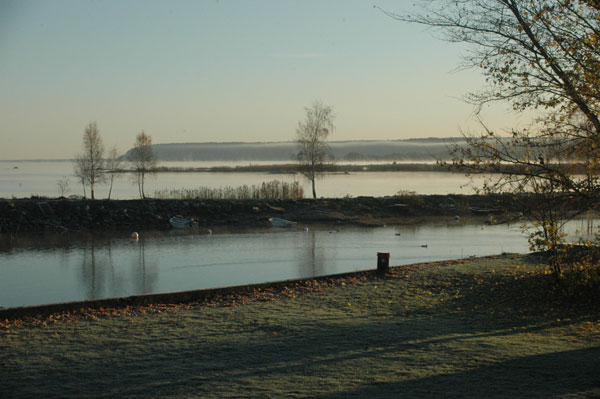 3 November 2008
3 November 2008
| Educational News |
| Politics and Business |
| South Asia related Culture |
| New and updated information |
• Unique SASNET library with Nordic South Asia related theses
SASNET has a unique collection of books about South Asia in its root node office at Scheelevägen 15 D in Lund. The library consists of more than 120 doctoral dissertations from the middle of the 1990s (and in some cases even older) up to 2008 published in Sweden and the other Nordic countries; besides a number of other titles. We also keep a collection of mostly Sri Lanka related books donated to SASNET by the Swedish journalist Thomas Bibin. It includes books, pamphlets and articles (mostly from Sri Lankan authors) from the 1960s onwards.
The unpretentious SASNET library encompasses a wide range of subjects, reflecting the variety of South Asia related research topics undertaken in the Nordic countries. SASNET gladly acceps any new publications from recent PhDs, researchers and academics in the Nordic countries. The books collection has recently been catalogued by our assistant Maria Tonini. Go for the catalogue of South Asia related theses in SASNET’s collection.
The catalogues for SASNET’s other books will also be posted on our web site soon.
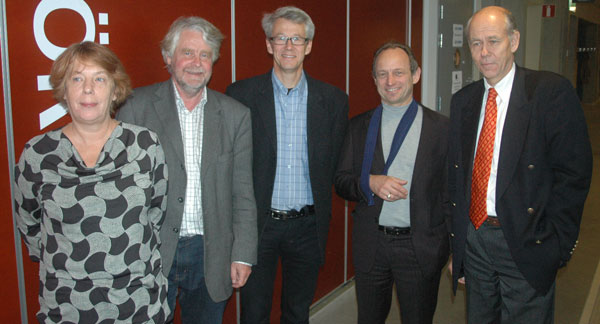 |
| Participants to the LTH seminar on Indo-Swedish research and educational collaboration, from left to right Sidsel Hansson and Lars Eklund, SASNET, Per Warfvinge, LTH, Ramon Wyss, KTH, and Tomas Aronsson, Vinnova. |
• SASNET presentation
at Lund University
SASNET participated in a half-day seminar on Indo-Swedish research and educational collaboration organised by the Faculty of Engineering (LTH), Lund University on Tuesday 21 October 2008. A large number of Lund University researchers gathered to listen to presentations by Tomas Aronsson from the Swedish Governmental Agency for Innovation Systems, VINNOVA, who talked about the formalised India-Sweden collaboration within the field of Science & Technology; and Prof. Ramon Wyss, Royal Institute of Technology (KTH), Stockholm, who presented INSTEC, the national network for India-Swedish Cooperation on Technical Research and Education (more information about INSTEC). Lars Eklund then presented SASNET and its role as a national resource base for increased collaboration between researchers and institutions in Sweden and India (and the rest of South Asia). Finally Prof.
Per Warfvinge, Vice-Dean for International Relations at the Faculty of Engineering presented the European Commission funded Erasmus Mundus External Cooperation Window (EMECW) programmes and especially the new India lot being coordinated by Lund University. This programme will enable a mobility flow of 400 fully funded students, researchers and academic staff per year between European and Indian universities. Prof. Warfvinge talked about the great possibilities of the EMECW programme, and the urgency of a quick process to recruit students and researchers. SASNET’s acting Director Dr. Sidsel Hansson will become the coordinator for this EU-India programme (more information).
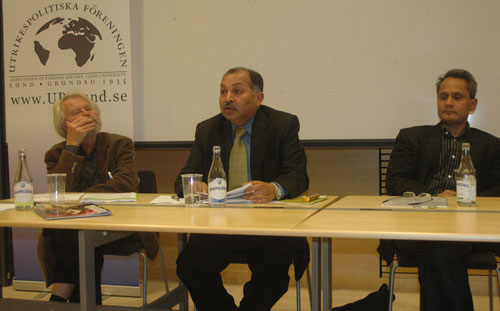 |
| Vijaykant Lal Karna, Nepali Ambassador to Scandinavia speaks during the SASNET/UPF Nepal seminar in Lund. He is being flanked by Staffan Lindberg to the left and Katak Malla to the right. Prof. David Ludden was the main speaker to the seminar. |
• SASNET/UPF Seminar on Nepal
A joint SASNET/UPF (Association of Foreign Affairs at Lund University) seminar on the political development in Nepal was held on Thursday 23 October 2008. The participants to the Lund seminar included Dr. Katak Malla from the Dept. of Law, Stockholm University, who talked about ”Nepal from monarchy to republic: the ongoing political process”; and HE the Ambassador of Nepal to Denmark (with a side accreditation to Sweden), Mr. Vijaykant Lal Karna, who is also a political scientist by profession, having worked at Tribhuvan University for 20 years.
During their stay in Lund, the Ambassador Mr. Vijaykant Lal Karna and Dr. Katak Malla from Stockholm University, old colleagues fom Tribhuvan University, also visited SASNET’s root node office at Scheelevägen. A fruitful discussion took place regarding the ongoing democratic transition process in Nepal and the urgency of support for the positive development. The Ambassador would welcome such initiatives from Sweden, and he thinks that SASNET should play a facilitating role.
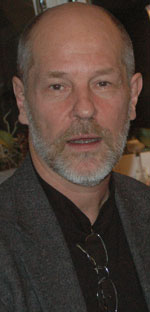 David Ludden (photo to the right), Professor of Political Economy and Globalization in the Department of History at New York University, USA was the main speaker with a presentation titled ”Where is the revolution? Towards a Post-National Politics of Social Justice”. Prof. Ludden received his PhD from the University of Pennsylvania in 1978 and was Professor of History there from 1999-2008. His research concentrates on South Asia and on histories of development in very long-term perspective, focusing on economic development, agrarian conditions, health environments, empire, inequality, and social conflict. In August 2008, he was invited by the Social Science Baha to hold the 2008 Mahesh Chandra Regmi Lecture in Kathmandu.
David Ludden (photo to the right), Professor of Political Economy and Globalization in the Department of History at New York University, USA was the main speaker with a presentation titled ”Where is the revolution? Towards a Post-National Politics of Social Justice”. Prof. Ludden received his PhD from the University of Pennsylvania in 1978 and was Professor of History there from 1999-2008. His research concentrates on South Asia and on histories of development in very long-term perspective, focusing on economic development, agrarian conditions, health environments, empire, inequality, and social conflict. In August 2008, he was invited by the Social Science Baha to hold the 2008 Mahesh Chandra Regmi Lecture in Kathmandu.
SASNET’s former Director Prof. Staffan Lindberg, Dept. of Sociology, Lund University was the moderator for the seminar that drew a crowd of around 40 people.
See the full information about the seminar and the three speakers (as a pdf-file).
Earlier the same daty, Prof. David Ludden also held a lecture on the concept of Asian area studies, for Master’s students at Lund University. In an illuminating talk, he briefly explained the US national agenda behind the set up and funding of Area Studies departments in US universities. The relevance of area studies (which had a prominent role during the Cold War years) was questioned in the 1990s by advocates of Globalisation as a new way to understand and articulate knowledge about the world; the need for experts on a particular area (or country) seemed outdated in the face of the new globalising world, where borders wouldn’t matter anymore and local differences would eventually be absorbed in the greater global frame. The tragic shock of 9/11, however, brought area studies back to the limelight; US realised it needed a corpus of highly professional experts on areas considered at risk for national security. SASNET’s Maria Tonini attended the lecture, read her report.
• SASNET lecture with Prof. Rana P B Singh
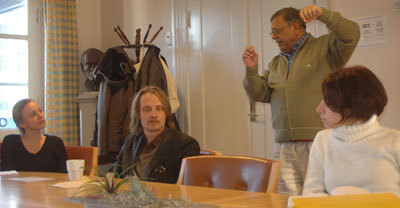 Prof. Rana P.B. Singh gave a SASNET lecture on ”Indian village: tradition, modernity and change” in Lund on Tuesday 28 October 2008. The seminar focusing on the developments in a village in Uttar Pradesh not far from Varanasi, was organised in collaboration with the Dept. of History and Anthropology of Religions, Lund University.
Rana P.B. Singh is a Professor of Cultural Geography at Banaras Hindu University, BHU. He has been involved in studying, performing and promoting the heritage planning, eco-tourism and rural studies and development in the Varanasi region for more than two decades, as consultant, project director, collaborator and organiser. In research, he combines the trilogy of historical process, cultural tradition and environmental ethics to understand the people and landscape in India. His publications include more than 30 volumes, and 150 research papers. He has also a long and strong connection to Sweden, regularly coming here since 1988 mostly being a visiting professor at Karlstad University, but he has also given lectures at the universities of Lund, Göteborg, Uppsala, Stockholm, Copenhagen, Aarhus, Åbo, Vasa, Oslo and Bergen. As president of the Indo-Nordic Cultural Association in Varanasi Prof. Singh has been involved in organising various India Study programmes for both Karlstad University and also Copenhagen University, and been a keen SASNET promoter in India. In 2004 he participated in the 18th ECMSAS conference, organised by SASNET in Lund. He convened Panel No 46 on ”Spirit and Power of Sacred Places, and Preservation of Cultural Heritage”. This year Prof. Singh was invited as a visiting faculty for a month to the Dept. of Religious Studies and Theology at Göteborg University. Read a summary of the SASNET lecture.
Prof. Rana P.B. Singh gave a SASNET lecture on ”Indian village: tradition, modernity and change” in Lund on Tuesday 28 October 2008. The seminar focusing on the developments in a village in Uttar Pradesh not far from Varanasi, was organised in collaboration with the Dept. of History and Anthropology of Religions, Lund University.
Rana P.B. Singh is a Professor of Cultural Geography at Banaras Hindu University, BHU. He has been involved in studying, performing and promoting the heritage planning, eco-tourism and rural studies and development in the Varanasi region for more than two decades, as consultant, project director, collaborator and organiser. In research, he combines the trilogy of historical process, cultural tradition and environmental ethics to understand the people and landscape in India. His publications include more than 30 volumes, and 150 research papers. He has also a long and strong connection to Sweden, regularly coming here since 1988 mostly being a visiting professor at Karlstad University, but he has also given lectures at the universities of Lund, Göteborg, Uppsala, Stockholm, Copenhagen, Aarhus, Åbo, Vasa, Oslo and Bergen. As president of the Indo-Nordic Cultural Association in Varanasi Prof. Singh has been involved in organising various India Study programmes for both Karlstad University and also Copenhagen University, and been a keen SASNET promoter in India. In 2004 he participated in the 18th ECMSAS conference, organised by SASNET in Lund. He convened Panel No 46 on ”Spirit and Power of Sacred Places, and Preservation of Cultural Heritage”. This year Prof. Singh was invited as a visiting faculty for a month to the Dept. of Religious Studies and Theology at Göteborg University. Read a summary of the SASNET lecture.
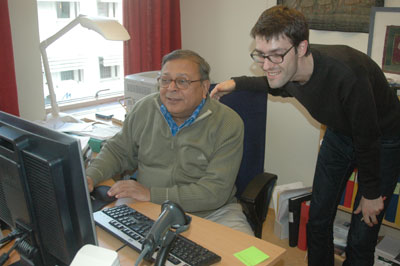 During his stay in Lund, Prof. Singh also visited SASNET’s root node office at Ideon Research Park and had discussions with the acting director Sidsel Hansson and deputy director Lars Eklund. Besides, he was given an opportunity to meet Erik Svanström, the librarian that is currently working for SASNET with digitalization of the Karl Reinhold Haellquist memorial collection (more information). This unique collection consists of more than 6000 South Asia related
books, journals, videotapes and pamphlets on various aspects
of South Asian studies that was donated to SASNET and the Asia Library in 2004. Since an important part of donation focuses on Mahatma Gandhi and his work, Mr. Svanström has created a special web site with this material, a web site that will soon be published by SASNET. Prof. Singh showed great enthusiasm for the project and contributed with several ideas on links. (Photo of Rana P B Singh with Erik Svanström).
During his stay in Lund, Prof. Singh also visited SASNET’s root node office at Ideon Research Park and had discussions with the acting director Sidsel Hansson and deputy director Lars Eklund. Besides, he was given an opportunity to meet Erik Svanström, the librarian that is currently working for SASNET with digitalization of the Karl Reinhold Haellquist memorial collection (more information). This unique collection consists of more than 6000 South Asia related
books, journals, videotapes and pamphlets on various aspects
of South Asian studies that was donated to SASNET and the Asia Library in 2004. Since an important part of donation focuses on Mahatma Gandhi and his work, Mr. Svanström has created a special web site with this material, a web site that will soon be published by SASNET. Prof. Singh showed great enthusiasm for the project and contributed with several ideas on links. (Photo of Rana P B Singh with Erik Svanström).
• SASNET lecture with James Heitzman cancelled
Prof. James Heitzman should have given a SASNET lecture on ”The City in South Asia: Historical Templates and Contemporary Challenges” in Lund on Tuesday 11 November 2008, in collaboration with the Division of Housing Development and Management, Lund Institute of Technology, Lund University. However, due to health problems Prof. Heitzman has been forced to cancel his tour to Scandinavia and the seminar in Lund.
• 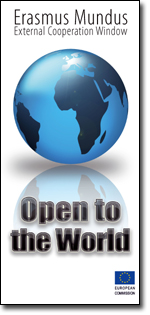 Erasmus Mundus External Cooperation Window EU-India programme starts
Erasmus Mundus External Cooperation Window EU-India programme starts
The Erasmus Mundus External Cooperation Window programme (EMECW) lot 15 – the India lot coordinated by Lund University – is now functional. A working meeting by the European partners will be held in Lund on Wednesday 5 November, and a working meeting for the Indian partners in New Delhi on Tuesday 11 November. The day after, on Wednesday 12 November 2008, an online application page will be opened at the following project web address: http://www.erasmuswindow15.org. Please note, that it will only be open for a period of two weeks.
The EMECW lot 15 programme with a mobility flow of 400 fully funded students, researchers and academic staff per year (both from India to Europe and vice versa) will be fully instrumental from 2009.
SASNET has been instrumental from the beginning in facilitating the successful application for the programme, that is now run by a consortium consisting of 12 universities in Europe and eight in India. Besides Lund University, the European members of the consortium are • Karolinska Institutet Medical University (KI) in Stockholm; • Katholieke Universiteit Leuven, Belgium; • Pierre & Marie Curie University (UPMC) in Paris, France; • Freie Universität Berlin, Germany; • Albert-Ludwigs-Universität Freiburg, Germany; • Politecnico di Milano, Italy; University of Vilnius, Lithuania; • University of Amsterdam, Netherlands; • International Institute for Geo-Information Science and Earth Observation (ITC) in Enschede, Netherlands; • Norwegian University of Science and Technology (NTNU) in Trondheim, Norway; and • University of Deusto in Bilbao, Spain.
The Indian consortium members are • University of Delhi; • Jadavpur University, Kolkata; • University of Pune; • University of Kerala; • Indian Institute of Technology (IIT) in Kanpur; • Tata Institute of Social Sciences (TISS) in Mumbai; • Pravara Institute of Medical Sciences in Loni, Maharashtra; and • Anand Agricultural University, Gujarat.
Additionally, four associate partners (two in Europe and two in India) are connected to the consortium: • Swedish Organisation for Individual Relief (SOIR) based in Lund, Sweden; • ALBOAN Foundation, Madrid, Spain; • Centre for Research and Education for Social Transformation (CREST) in Kozhikode, Kerala; and • Sampark Journal of Global Understanding in Kolkata. The role of these institutions will be to suggest candidates for the mobility programme from so-called vulnerable groups (target group 3). Dr. Sidsel Hansson, currently SASNET’ acting Director, will become Coordinator for the whole project.
More information about all EMECW programmes, including the other South Asia oriented Erasmus Mundus External Cooperation Window programme lot (No. 12) that is also coordinated by a Swedish university (Mälardalen University).
• SASNET’s Student Forum focuses on MA and PhD students in South Asia related disciplines
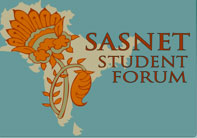 SASNET’s interactive web forum has now been running for a couple of months. It provides a meeting point for research students interested in South Asia. Both experienced researchers and beginners are welcome to participate in the forum discussions, and the aim is to create a forum including both discussions on academic topics and on practical issues concerning travelling, studying and doing research in India. The forum primarily aims at MA and PhD students in South Asia related disciplines, but others are welcome to join the discussions as well. SASNET student forum is the first step towards creating a sub-network for MA and PhD students interested in South Asian studies. It has been created by PhD Candidate Malin Gregersen, Dept. of History, Lund University. The ambition is to become a vivid meeting ground where students can exchange experiences, discuss research, share information about conferences, seminars and workshops, and become aware of each other’s existence. When the forum has been consolidated it will be expanded to include for example a calendar and a space where one can upload articles and dissertations. Meanwhile space will be provided within the forum for such topics. Go to the SASNET Student Forum.
SASNET’s interactive web forum has now been running for a couple of months. It provides a meeting point for research students interested in South Asia. Both experienced researchers and beginners are welcome to participate in the forum discussions, and the aim is to create a forum including both discussions on academic topics and on practical issues concerning travelling, studying and doing research in India. The forum primarily aims at MA and PhD students in South Asia related disciplines, but others are welcome to join the discussions as well. SASNET student forum is the first step towards creating a sub-network for MA and PhD students interested in South Asian studies. It has been created by PhD Candidate Malin Gregersen, Dept. of History, Lund University. The ambition is to become a vivid meeting ground where students can exchange experiences, discuss research, share information about conferences, seminars and workshops, and become aware of each other’s existence. When the forum has been consolidated it will be expanded to include for example a calendar and a space where one can upload articles and dissertations. Meanwhile space will be provided within the forum for such topics. Go to the SASNET Student Forum.
• More information about SASNET and its
activities
See SASNET’s page, http://www.sasnet.lu.se/sasnet.html
• Swedish Research Council support for Kristina Myrvold’s project on sikh scriptures
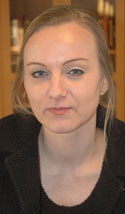 One South Asia related project was given a three-years grant for the period 2009-11 from the Swedish Research Council for
research within the fields of Humanities and Social Sciences
2008. The decision was taken on 23 October 2008. Dr. Kristina Myrvold, Division of Indic Religions, Department of History and Anthropology
of Religions, Lund University, was given SEK 1.8 million for a project titled ”Translating the Guru’s Words to Local and Translocal Contexts: Oral and Written Exegesis among Contemporary Sikhs”. The project focuses on religious practices and worship among the Sikhs in Punjab and in different diasporic settings, focusing on Sikh katha – oral and textual expositions of Guru Granth Sahib – in local and translocal contexts. More information about Dr. Myrvold and her research.
One South Asia related project was given a three-years grant for the period 2009-11 from the Swedish Research Council for
research within the fields of Humanities and Social Sciences
2008. The decision was taken on 23 October 2008. Dr. Kristina Myrvold, Division of Indic Religions, Department of History and Anthropology
of Religions, Lund University, was given SEK 1.8 million for a project titled ”Translating the Guru’s Words to Local and Translocal Contexts: Oral and Written Exegesis among Contemporary Sikhs”. The project focuses on religious practices and worship among the Sikhs in Punjab and in different diasporic settings, focusing on Sikh katha – oral and textual expositions of Guru Granth Sahib – in local and translocal contexts. More information about Dr. Myrvold and her research.
• Dissertation on Arsenic in the Meghna basin, Bangladesh
Md. Aziz Hasan, Dept. of Land and Water Resources Engineering, Royal Institute of Technology (KTH), Stockholm will defend his doctoral dissertation titled ”Arsenic in alluvial aquifers in the Meghna basin, South-Eastern Bangladesh: Hydrogeological and geochemical characterisation” on Wednesday 5 November 2008. Mr. Hasan is also connected to the Department of Geology,
University of Dhaka. The study reveals that the local and regional scale variations in groundwater composition, levels
of As concentrations and the redox conditions are governed by the geological attributes of the
aquifers. Groundwater in the grey to dark grey argillaceous sediments where organic matter and
micas are abundant contain high concentration of dissolved As.
High concentrations of As and salinity are the major constraints for groundwater development in
the Holocene alluvial aquifers of the Meghna basin.
Abstraction of groundwater from the Holocene deeper low-As aquifers for drinking purposes
should thus be be properly guided to minimise the risk of cross-contamination and installation of
high-capacity irrigation wells in the deeper aquifers must be avoided for sustainable drinking
water supplies. Read
the full dissertation (as a pdf-file)
• Doctoral dissertation on unhealthy seafood in Goa
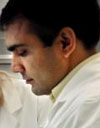 Vishal Singh Parihar, Dept. of Restaurant and Culinary Arts, Academy of Health Science, Örebro University, Campus Grythyttan defended his doctoral dissertation titled ”Human listeriosis: Sources and Routes” on Monday 29 September 2008. The defence took place at Gastronomiska teatern in Grythyttan. An article about the dissertation was published in Nerikes Allehanda on 8 October 2008. Read the article titled ”Indisk veterinär disputerar i Grythyttan på giftig bakterie”.
Vishal Singh Parihar, Dept. of Restaurant and Culinary Arts, Academy of Health Science, Örebro University, Campus Grythyttan defended his doctoral dissertation titled ”Human listeriosis: Sources and Routes” on Monday 29 September 2008. The defence took place at Gastronomiska teatern in Grythyttan. An article about the dissertation was published in Nerikes Allehanda on 8 October 2008. Read the article titled ”Indisk veterinär disputerar i Grythyttan på giftig bakterie”.
Dr. Parihar, who has a background as a veterinary in India, has studied the bacterium Listeria monocytogenes that can cause the disease listeriosis in both humans and animals. The research has been carried out both in Sweden and in India. The incidence of Listeria species in seafood from markets in Goa has been the focus for one case study. One hundred and fifteen raw/fresh seafoods bought at the fish markets were sampled and tested for presence of Listeria spp. L. monocytogenes was detected in 10 samples. L. monocytogenes in raw seafood may pose a health risk in kitchen if contaminating ready-to-eat food. Faculty opponent was Prof. Carl Påhlsson, School of Sustainable Development of Society and Technology, Mälardalen University, Västerås. Read the full abstract for the thesis.
Information about other South Asia related theses defended at Nordic universities during 2007-08.
• Copenhagen South Asia Research Network formed
The Copenhagen South Asia Research Network is a new multidisciplinary home to South Asia based research in Denmark. The network aims to collate and disseminate research in both popular and scholarly forums. It also facilitates international exchange and collaboration through workshops, conferences and lectures where younger scholars are particularly encouraged to participate. The network draws researchers from Copenhagen Business School (CBS), Nordic Institute of Asian Studies (NIAS), University of Copenhagen (KU), Aarhus University (AU), Roskilde University (RU), and Danish Institute of International Studies (DIIS) among others. To join the mailing list or to receive further information, please send an e-mail to Dr. Ravinder Kaur, Roskilde University.
• NIAS seeks a new full-time Director
![]() The Nordic Institute of Asian Studies (NIAS) in Copenhagen seeks a new full-time Director. NIAS is an internationally recognized, 40 years old Asian studies institute. Together with 26 Nordic partner institutions NIAS works to promote the study of Asia. The new Director should be a recognised researcher with a substantial research record in Asian studies and have proven leadership skills and management experience. The new Director will be expected to continue active research in the Asian Studies field on a 25% time basis. Position available as of 1st February 2009 or as soon as possible thereafter. Full information.
The Nordic Institute of Asian Studies (NIAS) in Copenhagen seeks a new full-time Director. NIAS is an internationally recognized, 40 years old Asian studies institute. Together with 26 Nordic partner institutions NIAS works to promote the study of Asia. The new Director should be a recognised researcher with a substantial research record in Asian studies and have proven leadership skills and management experience. The new Director will be expected to continue active research in the Asian Studies field on a 25% time basis. Position available as of 1st February 2009 or as soon as possible thereafter. Full information.
• Introduction to the electronic edition of the Census of India
The Tranquebar Initiative at the National Museum of Denmark, and the Department of Cross-Cultural and Regional Studies, University of Copenhagen organise an introduction course to The Census of India. This is nowadays accessible in electronic form on CD or via the internet, but only few non-Indian scholars utilise those facilities due to the complicity of the Census tables which works in Excel format. The course will be held in Copenhagen on Wednesday 19 November 2008, 10.00–15.00. It will include a short introduction to the form and tables of the Census of India, and demonstrate how to utilize the electronic version of the Census. The materials will be demonstrated on data from Tamil Nadu (and Tarangambadi gram), but please note which geographical areas in India and forms of information you are interested in in your application to the course, which will be limited to 12 participants. Invited lecturer is visiting professor Amit Prakash from the Department of Cross-Cultural and Regional Studies. His home university is otherwise Jawaharlal Nehru University in New Delhi. Venue: Department of Cross-Cultural and Regional Studies, Section for the History of Religions, Artillerivej 86, Copenhagen. Registration should be done before 12 November 2008 with Kristian Krogh Hansen, kristiankroghhansen@gmail.com
Tel: +45-24 34 33 96. More information.
• South Asian library repositories available in OpenDOAR
OpenDOAR is an authoritative and useful directory of academic open access
web based library repositories launched in 2005. It was started and initially developed by the University of Nottingham, UK and Lund University, Sweden. OpenDOAR has opted to collect and provide information solely on sites that wholly embrace the concept of open access to full text resources. Thus sites where any form of access control prevents immediate access are not included. Each OpenDOAR repository has been visited by project
staff to check the information that is recorded. Go for OpenDOAR.
South Asian repositories included in OpenDOAR include (October 2008): Afghanistan Centre at Kabul University (ACKU) Library Catalogue; International Centre for Diarrhoeal Disease Research Digital Repository, Bangladesh (ICDDR,B); DSpace at Indian Institute of Management Kozhikode; Eprints@Indian Institute of Technology, Delhi (IITD); and many other Indian institutions; E-prints from Higher Education Commission Pakistan (HEC).
• Report from Sida’s meeting on development assistance to Afghanistan
On Friday 26 September 2008, a meeting of interested Swedish parties in Afghanistan was held at the Swedish Foreign Ministry in Stockholm. The meeting, which was chaired by the heads of South Asia and Afghanistan desks at the Foreign Ministry, was attended by representatives from major Swedish governmental institutions as well as Nongovernmental Organizations (NGOs) such as Swedish Committee for Afghanistan (SCA); Swedish Red Cross; Save the Children Sweden; Swedish Church’s Mission; Swedish Rescue Services Agency (SRSA); Hand in Hand Afghanistan Organization (HiHAO); Forum Syd; Swedfund; Swedish Army; Justice Department; Swedish Embassy in Kabul, Swedish International Development Cooperation Agency (Sida) and Swedish South Asian Studies Network (SASNET). PhD Candidate Ahmed Gholam, Division of Islamology, Centre for Theology and Religious Studies, Lund University participated in the meeting as SASNET’s representative. Read Mr. Gholam’s report from the Stockholm meeting.
•
Improved visa processing service by the Swedish Embassy in New Delhi
 In order to improve the services to applicants and facilitate visa processing, the Embassy of Sweden in India has commissioned a private company, VFS Global Services, to operate the Swedish Visa Application Centre (VAC) in New Delhi from 15 October 2008.
The VFS Swedish Visa Application Centre located at No. 5, S-1 Level, E-Block, International Trade Tower, Nehru Place, New Delhi-110019, will accept visa applications from all country nationals who wish to travel to Sweden.
VFS shall accept applications for Tourist, Relative/Friend, Business, Conference, and Transit Visa categories maximum of 90 days duration in a six months period.
Processing time will be of five working days (including day of submission at VFS) for Business/Conference and Transit visas and eight Working days (including day of submission at VFS) for Tourists, Visiting Friends and Relatives.
Those who wish to submit their visa applications at the Embassy, should note that the processing time will be 10 working days for Business/Conference and Transit Visas and 15 working days for Tourists, Visiting Friends and Relatives.
Applications for stay in Sweden exceeding 90 days, or Residence and/or Work Permit, still need to be submitted at the Embassy in New Delhi or Consulates in Chennai, Kolkata and Mumbai. More information.
In order to improve the services to applicants and facilitate visa processing, the Embassy of Sweden in India has commissioned a private company, VFS Global Services, to operate the Swedish Visa Application Centre (VAC) in New Delhi from 15 October 2008.
The VFS Swedish Visa Application Centre located at No. 5, S-1 Level, E-Block, International Trade Tower, Nehru Place, New Delhi-110019, will accept visa applications from all country nationals who wish to travel to Sweden.
VFS shall accept applications for Tourist, Relative/Friend, Business, Conference, and Transit Visa categories maximum of 90 days duration in a six months period.
Processing time will be of five working days (including day of submission at VFS) for Business/Conference and Transit visas and eight Working days (including day of submission at VFS) for Tourists, Visiting Friends and Relatives.
Those who wish to submit their visa applications at the Embassy, should note that the processing time will be 10 working days for Business/Conference and Transit Visas and 15 working days for Tourists, Visiting Friends and Relatives.
Applications for stay in Sweden exceeding 90 days, or Residence and/or Work Permit, still need to be submitted at the Embassy in New Delhi or Consulates in Chennai, Kolkata and Mumbai. More information.
• Chair position available in Sikh and Punjabi Studies at UC Santa Cruz
The Humanities Division of the University of California, Santa Cruz, invites applications for the newly created Sarbjit Singh Aurora Endowed Chair in Sikh and Punjabi Studies. The endowed chair will be held by a distinguished member of the humanities faculty and will support research and teaching about the Sikh community from a multicultural and global perspective, including gender, diaspora, literary, historical, and cultural studies. Candidates may work in any field in the humanities and will be appointed at any rank from advanced assistant to full professor. This position carries a five-course equivalency workload, which normally means teaching four courses over three quarters and carrying out other academic and service responsibilities. Position is available from July 1, 2009. The position will remain open until filled, but in order to be considered at the initial screening, applications must be received by Friday, December 12, 2008. More information.
• Fellowship for Research on Indian Religious History at Ruhr University Bochum
The International Research Consortium on “Dynamics in the History of Religions between
Asia and Europe” at Ruhr University Bochum, Germany, invites applications for a
Fellowship for Research on Indian Religious History during the academic year April 2009 through March 2010. Candidates should be able to contribute with research on Indian religious history during the 1st Millennium BCE to Late Antiquity
with special regard either a) to diachronic or synchronic interactions between Vedic
Religion, Buddhism, Jainism, and Hindu Religions, b) to intra-religious diversity, or
c) to contacts between Indian religions and Central Asian or East Asian religions.
Applicants must at least hold a PhD. Applications should be sent before 31 December 2008. Full information.
• Position for Associate Professor in pre-1800 South Asian history at UC Irvine
The Department of History at the University of California, Irvine invites applications for a position in pre-1800 South Asian history. The department will appoint at the tenure track assistant or tenured beginning
associate professor level, contingent upon qualifications. All research specializations in Ancient,
Medieval, and Early Modern South Asian History are welcome to apply. Preference will be given to
candidates who can participate in the department’s World History program. Start date: July 1, 2009.
Deadline for applications is Friday 7 November 2008. Full information.
• Professorship in South Asian Environmental History at Vassar College
The Department of History at Vassar College invites applications for a
full-time, tenure-track assistant professorship in South Asian Environmental History beginning August 2009. This
position requires specialization in South Asia, with a focus on
Environmental History broadly defined, and ability to teach the History
of India. Interviews of selected candidates will be conducted at the American
Historical Association annual meeting in New York City, January 2-3,
2009. For full consideration, send letter of application, vitae, and
three letters of reference by November 15, 2008 to Rebecca Edwards,
Chair, Department of History, Box 711, 124 Raymond Avenue, Poughkeepsie,
NY 12604-0711, USA.
• Papers invited for book on poor people of India
Dr. Aparajita Chattopadhyay at the
Department of Development Studies,
International Institute for Population Sciences (IIPS) in Mumbai, India, invites researchers for papers to a coming edited volume on Poor People of India and their development related issues. The preliminary outline of the proposed book includes chapters on issues such as Indian Poverty: Meaning and Measurement; Indian Poverty: From History to the Present; Population dynamics of the poor; Poor people – Rich People: Disparity in development; Poverty Clusters and regional scenario; Poverty and Gender; Poverty and Environment: Degradation and Defense; and Policy and Politics with the poor: Local to National.
Authors must follow the standard guideline of peer reviewed journals while writing and formatting their paper. They are requested to send a 250 word abstract by 31 December 2008. The last date for submission of the full paper is 31 March 2009. Selection of the paper will be made by an expert committee and authors will be informed regarding the status of selection of their paper by 30 April 2009. Interested writers are requested to contact Dr. Aparajita Chattopadhyay.
• More information about South Asia related
research at Swedish and Nordic universities
See SASNET’s page, http://www.sasnet.lu.se/research.html
Go for the
|
• Time to apply for the Linnaeus Palme exchange programme
Applications for the Linnaeus Palme exchange programme for the
period 1 July 2009 – 30 June 2010 should be delivered
to the International Office or equivalent authority at the
local Swedish university not later than 15 November, 2008.
Decisions will be taken by the International Programme Office for
Education and Training in the middle of May 2009. More information.
• Useful Swedish Institute website for international students and scholars
 SwedeninTouch.se is a new network for international students, scholars and professionals who are in Sweden or have been to Sweden. The aim of the network is to bring together the large group of international students and professionals and help them to stay updated and in touch with Sweden. SwedenInTouch.se is a part of the official gateway to Sweden and is administrated by the Swedish Institute. It went live on July 10, 2008 and is still in its early stages as a beta version under development. Go for SwedeninTouch.se
SwedeninTouch.se is a new network for international students, scholars and professionals who are in Sweden or have been to Sweden. The aim of the network is to bring together the large group of international students and professionals and help them to stay updated and in touch with Sweden. SwedenInTouch.se is a part of the official gateway to Sweden and is administrated by the Swedish Institute. It went live on July 10, 2008 and is still in its early stages as a beta version under development. Go for SwedeninTouch.se
• Spoken Sanskrit Summer School in Australia in February
A two-weeks residential Spoken Sanskrit Summer School will be organised by the Faculty of Asian Studies at the Australian National University in Canberra, 6–20 February 2009. It will be led by Pandit Dr Sadananda Das from the University of Leipzig, Germany, who also taught the First Australian Spoken Sanskrit Summer School in 2006. The summer school will be held at the magnificent setting of the University’s coastal campus at Kioloa, New South Wales. The course will cater both for graduates of Dr Das’ earlier courses and for those with no previous experience of Spoken Sanskrit (but a prerequisite is that the student must have a minimum of one-year of Sanskrit studies at tertiary
level, or equivalent). Students familiar with Dr Das’ student-focussed learning philosophy will look forward to more verses, song, role-play and drama. Deadline for registration: 6 December 2008.
• Indological Student's Union formed in Oslo
The Indological Student's Union has been formed at the University of Oslo. It aims to be an interdisciplinary forum for students and others with an
interest in Indology and South Asia and will arrange lectures, seminars,
discussions etc. on relevant topics. Notifications on coming events will
be posted on the the discussion forum NOFSA-net. Although the primary base of the Union is the
students and staff of the University of Oslo, all others are welcome both
to attend the events and to become members. Mr. Adrian Plau is the contact person. The association is affiliated to the Department of Culture Studies and Oriental Languages at University of Oslo. More information.
• More information about South Asia related
education at Swedish and Nordic universities
See SASNET’s page, http://www.sasnet.lu.se/education.html
• XXXVI World Congress on Housing Science in Kolkata
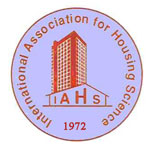 The XXXVI World Congress on Housing Science is held in Kolkata, India, 3–7 November 2008. It is being organised by the Indian Institute of Technology (IIT) Kharagpur on behalf of the International Association for Housing Science (IAHS). The Congress will cover the various national housing programmes that have evolved the world over. It will address the issues of urban development and urban environmentalism. The effects of globalisation on housing, innovative housing finance schemes will feature among discussions. An emphasis will be given on new building materials like nano and low energy materials, and construction management concepts like simulation based optimisation process and best fit approach. Classical issues of slum and squatter settlement up gradation and provision of urban infrastructure will also be covered. The Congress will give us a better understanding and global perspective on housing science and may go a long way to improve the overall housing situation. This will be the second IAHS Congress to be held in India. Venue: Hotel ITC Sonar Bangla, Kolkata.
The XXXVI World Congress on Housing Science is held in Kolkata, India, 3–7 November 2008. It is being organised by the Indian Institute of Technology (IIT) Kharagpur on behalf of the International Association for Housing Science (IAHS). The Congress will cover the various national housing programmes that have evolved the world over. It will address the issues of urban development and urban environmentalism. The effects of globalisation on housing, innovative housing finance schemes will feature among discussions. An emphasis will be given on new building materials like nano and low energy materials, and construction management concepts like simulation based optimisation process and best fit approach. Classical issues of slum and squatter settlement up gradation and provision of urban infrastructure will also be covered. The Congress will give us a better understanding and global perspective on housing science and may go a long way to improve the overall housing situation. This will be the second IAHS Congress to be held in India. Venue: Hotel ITC Sonar Bangla, Kolkata.
• Stockholm conference on Peacebuilding in Afghanistan
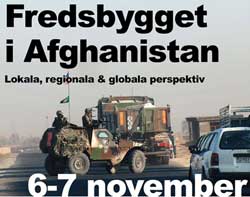 An International conference on ”Peacebuilding in Afghanistan: Local, regional and global perspectives” will be held in Stockholm 6–7 November 2008. The conference focuses on what the peacebuilding efforts look like in the country? What roles do the Afghan authorities, the International Community, the UN and the Nato-led ISAF forces play? Do they contribute to peace or armed conflict? Are there local initiatives at grassroots level promoting peace and how does the civilian population contribute to the reconstruction of the country? Why does Afghanistan receive so little funding for reconstruction compared to other areas of armed conflict? Have the complex developments in Afghanistan become something that the West would rather not have to deal with? What actions are needed in order for Afghanistan to become a country of peace and stability?
An International conference on ”Peacebuilding in Afghanistan: Local, regional and global perspectives” will be held in Stockholm 6–7 November 2008. The conference focuses on what the peacebuilding efforts look like in the country? What roles do the Afghan authorities, the International Community, the UN and the Nato-led ISAF forces play? Do they contribute to peace or armed conflict? Are there local initiatives at grassroots level promoting peace and how does the civilian population contribute to the reconstruction of the country? Why does Afghanistan receive so little funding for reconstruction compared to other areas of armed conflict? Have the complex developments in Afghanistan become something that the West would rather not have to deal with? What actions are needed in order for Afghanistan to become a country of peace and stability?
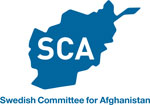 The conference is is organised by the Swedish Committee for Afghanistan (SCA), in cooperation with ENNA (European Network of NGOs in Afghanistan). Invited speakers include prominent persons such as Ashraf Ghani, Chairman of the Institute of State Effectiveness, and Chancellor of Kabul University; Sima Samar, Chairperson of the Afghan Independent Human Rights Commission; Kristian Berg Harpviken,
senior researcher, International Peace Research Institute (PRIO) in Oslo; Aziz Rafiee, Head of Afghanistan Civil Society Forum; and Kai Eide, UN Special Representative in Afghanistan, and head of the United Nations Assistance Mission in Afghanistan (UNAMA). The conference language will be English. Registration is necessary to participate. Send your registration to seminar@sak.se. Venue: Polstjärnan, Sveavägen 77, Stockholm. More information including full updated programme.
The conference is is organised by the Swedish Committee for Afghanistan (SCA), in cooperation with ENNA (European Network of NGOs in Afghanistan). Invited speakers include prominent persons such as Ashraf Ghani, Chairman of the Institute of State Effectiveness, and Chancellor of Kabul University; Sima Samar, Chairperson of the Afghan Independent Human Rights Commission; Kristian Berg Harpviken,
senior researcher, International Peace Research Institute (PRIO) in Oslo; Aziz Rafiee, Head of Afghanistan Civil Society Forum; and Kai Eide, UN Special Representative in Afghanistan, and head of the United Nations Assistance Mission in Afghanistan (UNAMA). The conference language will be English. Registration is necessary to participate. Send your registration to seminar@sak.se. Venue: Polstjärnan, Sveavägen 77, Stockholm. More information including full updated programme.
• Oslo workshop on Adaptation to Environmental Challenges in South
Asia
A Workshop titled ”Politics of Adaptation to Environmental Challenges in South
Asia in the 21st Century” will be held at Oslo University 7–9 November 2008. The workshop is organised by Prof. Pamela Gwynne Price, Dept. of Archaeology, Conservation and History (IAKH); and Prof. Arild Engelsen Ruud, Dept. of Culture Studies and Oriental Languages (IKOS). The intent of this workshop is encourage discussion about possible
methods and approaches for dealing with the unpredictable, political
aspects of adaptation to climate change. Venue: Soria Moria Hotel and Conference Center in a woods on the edge of
Oslo, Norway. More information.
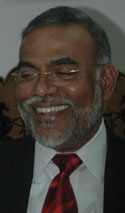 • Narendra Jadhav keynote speaker at Dalit Studies Conference
• Narendra Jadhav keynote speaker at Dalit Studies Conference
The University of Pennsylvania holds a Dalit Studies Conference 3–5 December 2008. It is jointly organised by the university’s
Center for the Advanced Study of India (CASI); South Asia Center within the Dept. of South Asia Studies; and Center for African Studies. Dr. Narendra Jadhav (photo to the right), Vice Chancellor at the University of Pune, India will be the keynote speaker, with a presentation titled “Empowerment of Dalits and Adivasis Role of Education in the Emerging Economy”. He will also chair a panel on ”The Paradox of the Market”. Other panels will be held around issues such as ”The Paradox of Indian Feminism” (chaired by Ania Loomba, University of Pennsylvania), ”The Paradox of Marxist and Non-Brahman Ideologies” (chaired by Atul Kohli, Princeton University), and ”The Paradox of Postcolonial State” (chaired by Gail Omvedt, Indian Institute of Advanced Study). Venue: The Inn at Penn,
3600 Sansom Street,
Philadelphia, USA. More information
• INSTEC organises International Workshop in Kochi
An International Workshop on “The Sustainable City (Sustainable Environmental Technology for
Urban Development)” will be held in Kochi, Kerala, India 10–12 December 2008. The workshop is jointly organised by the Swedish
Network for Indian-Swedish Cooperation on
Technical Research and Education (INSTEC, more information); Kerala State Council for Science, Technology and Environment in Thiruvananthapuram; and Cochin University of Science and Technology (CUSAT) in Kochi. The objective of the workshop is to bring together interested parties from universities, research organizations, industry and governmental organisations, with the purpose of initiating broad and diverse collaboration on development and implementation of environment technology and system solutions for sustainable urban development. The workshop will, apart from knowledge sharing, promote all forms of cooperation, from relatively small and short-term to long-term strategic cooperation and joint-ventures. More information will follow.
• SASNET Fermented Foods conference on tropical bio-mass in Kerala
An international seminar and workshop on ”Sustainable Utilization of Tropical Plant Bio-mass” will be held in Thiruvananthapuram, Kerala State, India, 15–16 December 2008. It will be jointly organized by the Centre for Bioinformatics, and the Department of Environmental Sciences of Kerala University; Kerala Agricultural University; Kerala State Council of Science Technology and Environment; the SASNET Fermented Foods (based at Anand Agricultural University, Gujarat); and the Dept. of Applied Nutrition, Lund University. The aim of the conference is to present a platform for discussing sustainable utilization of the tropical plant bio mass addressing not only to the day to day needs of the human beings regarding food, shelter, health and social well-being but also covering aspects of biodiversity, environmental hazards and climatic changes in a long term perspective. Delegates are expected from India, Sri Lanka, Sweden and many other countries. More information.
• UNRISD invites participants for NGO Forum in Geneva
The United Nations Research Institute for Social Development (UNRISD) is organizing an NGO Forum in Geneva, Switzerland 12–13 January 2009. This forum will take the form of a consultation with NGOs, and has three objectives: –
To allow UNRISD to gauge NGO views on key emerging issues that might be addressed by UNRISD in future research, and to better understand the research needs and concerns of NGOs; –
To seek advice about how to improve communication with NGOs; and –
To present the results of UNRISD research to NGOs stakeholders. At this forum, UNRISD aims to bring together participants from different types of NGOs, representing a range of development disciplines and regions of the world. Participants should be influential in the NGO sector at a regional or international level. UNRISD welcomes applications from NGOs that actively engage in policy debates beyond the national level, participate in events and publish on international development. The organization’s representative at this forum should have an in-depth knowledge of development issues and debates. More information.
• Johannesburg conference on Indian Ocean as a visionary area
An international conference on ”Print Cultures, Nationalisms and Publics of the Indian Ocean” will be held in Johannesburg, South Africa 15–17 January 2009. It will be convened by Isabel Hofmeyr from the University of the Witwatersrand, and Preben Kaarsholm fromRoskilde University, Denmark on behalf of the Research Network on ”The Indian Ocean as Visionary Area:
Post-Multiculturalist Approaches to the Study of Culture and Globalisation”. Deadline for submission of papers accepted for presentation will be 14
December 2009. Venue: The Wits Club, University of the Witwatersrand, Johannesburg.
• 21st Kerala Science Congress will be held in Kollam
The 21st Kerala Science Congress will be held in Kollam, India 28–31 January 2009. The special theme for the conference will be “Role of Science & Technology for the Industrial Development of Kerala”. It is organised by the Kerala State Council for Science, Technology and Environment (KSCSTE). Six research & development (R & D) centres, viz. the Centre for Earth Science Studies (CESS), Centre for Water Resources Development and Management (CWRDM), Kerala Forest Research Institute (KFRI), National Transportation Planning and Research Centre (NATPAC), Rajiv Gandhi Centre for Biotechnology (RGCB), Tropical Botanic Garden and Research Institute (TBGRI), and Kerala School of Mathematics (KSM) are functioning under the umbrella of KSCSTE. The Kerala Science Congress (KSC) is organised every year dedicating its efforts for revitalization of R & D in the State and shifting the focus towards solving the developmental problems of Kerala. Last date for registration and submission of extended abstract is 15 November 2008. Venue for the event is C. Kesavan Memorial Hall in Kollam.
• Wabash conference on Hindu Umbrella Organisations and ‘Ecumenical Hinduism’
An International Conference on ”The Public Representation of a Religion called Hinduism:
Umbrella Organisations and ‘Ecumenical Hinduism’” will be held at Wabash College in Crawfordsville, Indiana, USA 23–24 March 2009. The focus of the Wabash conference will be on what have become known as ”umbrella organisations” and the forms of Hinduism projected by these
organisations. Umbrella organisations are particularly prominent in diaspora
contexts, where they have sought to represent Hindus socially, culturally,
politically in a self-consciously broad, non-aligned fashion (for example,
the Hindu Forum of Britain and the Hindu American Foundation, temple
organizations, student associations, foundations, and anti-discrimination
organisations). The network will examine the ideological trajectories of
such organisations and their impact both in diasporic and Indian context.
This conference is part of a two year network project on the ”Public
representation of a religion called Hinduism”, funded by the Arts and
Humanities Research Council in the UK. Paper proposals for the Wabash Conference should be sent to Raymond Brady
Williams by November 1, 2008. The conference will
schedule discussion of research papers (one hour each) and a few brief
presentations of work in progress (15 minutes). Publication of selected
research papers in a book or an edited journal issue is planned.
The network is in a position to offer some financial assistance to potential
paper givers in order to enable them to attend this meeting. Please contact John Zavos to discuss possibilities. Meetings of the research project are held at Jawaharlal Nehru University at
Delhi, Wabash College, the University of Manchester UK, and the University
of Houston at Clear Lake. More information.
• 2009 Yale Modern South Asia Workshop
The South Asian Studies Council at Macmillian Center for International and Area Studies, Yale University, USA organises the 2009 Yale Modern South Asia Workshop in New Haven, CT on 11–12 April 2009. The workshop will feature the unpublished work of advanced graduate students and postdoctoral scholars who attempt to challenge theoretical and/or methodological conventions in their work. Papers are solicited from all disciplines in the Humanities and Social Sciences. The workshop will bring together a community of junior scholars for discussions of theory, method, and inter-disciplinarity regarding topics of current interest in modern South Asian studies. Papers from all disciplines in the Humanities and Social Sciences will be presented. Session organization will reflect the state of submissions. Potential sessions will revolve around key words: identity politics, transnationalism, gender, sexuality, violence, Dalit identity, science and technology, etc. Abstracts of no more than 250 words, along with full contact information, academic affiliation, discipline, one-page CV, and year in graduate program/year of PhD should be submitted by email to southasia.workshop@yale.edu by 15 December 2008. Successful candidates would be informed by 15 January 2009. Final papers of 6000-7000 words have to be submitted by 15 March 2009. Complete papers will be pre-circulated and discussed amongst the entire group. Need based travel grant and accommodation will be provided to selected candidates.
• Other conferences connected to South Asian
studies arranged all over the World
See SASNET’s page, http://www.sasnet.lu.se/conferences.html#conf
Important lectures and seminars in Scandinavia
• Oslo seminar on Madhesis in the Terai, south Nepal
Prof. Ramawatar Yadav, Vice Chancellor of Purbanchal University, Biratnagar, Nepal will lecture in Oslo on ”Being Madeshi.
The cultural background of the political situation in the Terai, south Nepal” on Thursday 13 November 2008, 11.00–12.00. The seminar is organised by the International Peace Research Institute (PRIO). Prof. Yadav is a distinguished researcher on Nepalese language and culture. He has been a British Council scholar, the first Fulbright scholar of Nepal in the USA and a post-doctoral scholar in Germany. His presentation will focus on the fact that, in spite of the otherwise assertions of anthropologists and sociologists of Nepal, the main ethnological and cultural divide worth its name remains to be the Pahadi-Madheshi divide in the country. Participants should register in advance to seminar@prio.no. Venue: PRIO, Hausmanns gate 7, Oslo. More information.
• Vibodh Parthasarathi lectures in Lund on Indian Media and Governance
 Vibodh Parthasarathi, Reader at the Centre for Culture, Media & Governance, Jamia Millia Islamia, New Delhi, India will participate in the Wahlgren Symposium on Democracy, Globalization & Media, to be held at Lund University on Friday 14 November 2008, 10.15–16.45. Dr. Parthasarathi will give a speech on ”Perspectives on Media and Governance: Reflections from India”. Over the last 15 years, he has maintained a multidisciplinary interest in media theory, communication & development policy, and comparative media practice.
He has co-edited three anthologies on Communication Processes published by Sage: Media and Mediation (2005), The Social and the Symbolic (2007), Culture and Confrontation (in press). As the International Coordinator of a research/publishing project on ‘Citizenship and Communication’, involving scholars from Brazil, France & India, he was also the co-editor of the anthology l’Idiot du Village Mondial (Editions Luc Pire, Brussels, 2004). See the programme for the Wahlgren Symposium
Vibodh Parthasarathi, Reader at the Centre for Culture, Media & Governance, Jamia Millia Islamia, New Delhi, India will participate in the Wahlgren Symposium on Democracy, Globalization & Media, to be held at Lund University on Friday 14 November 2008, 10.15–16.45. Dr. Parthasarathi will give a speech on ”Perspectives on Media and Governance: Reflections from India”. Over the last 15 years, he has maintained a multidisciplinary interest in media theory, communication & development policy, and comparative media practice.
He has co-edited three anthologies on Communication Processes published by Sage: Media and Mediation (2005), The Social and the Symbolic (2007), Culture and Confrontation (in press). As the International Coordinator of a research/publishing project on ‘Citizenship and Communication’, involving scholars from Brazil, France & India, he was also the co-editor of the anthology l’Idiot du Village Mondial (Editions Luc Pire, Brussels, 2004). See the programme for the Wahlgren Symposium
• Iqbal Academy Scandinavia symposium on Religion, Peace and Political Violence
Iqbal Academy Scandinavia invites to a symposium on ”Religion, Peace and Political Violence” in Taastrup, Denmark on Saturday 15 November 2008, 13.00–16.00. The symposium is held in connection with the 2008 Iqbal Day celebration. Speakers from Denmark as well as from other countries will participate. Iqbal Academy Pakistan will be represented by Dr. Ejaz Akram, Associate Professor in Religion and Politics at the Dept. of Humanities and Social Sciences, Lahore University of Management Sciences (LUMS). Venue: Medborgerhuset, Hovedgade 71, 2nd floor, Taastrup, Denmark. Information on previous Iqbal Academy symposia.
• Oslo research seminar on Social Inclusion in Nepal
The Norwegian Agency for Development Cooperation (Norad) organises a research seminar on ”Social Inclusion in Nepal” in Oslo on Monday 17 November 2008, 12.00–15.00. Researchers from Chr. Michelsens Institutt (CMI) in Bergen and the Norwegian Institute for Urban and Regional Research (NIBR) in Oslo, will present their ongoing collaboration with Nepalese research institutions within the framework of the Norad funded major research programme on Social Inclusion and Nation Building in Nepal, initiated in 2006. Participants should register in advance to Hilde Thyness or Marit Vedeld no later than 12 November. november. Venue: NORAD Information centre, 6th floor, Ruseløkkveien 26, Oslo. More information about the research programme.
• Stockholm seminar on innovative science-based projects
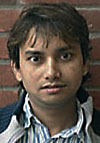 The Swedish Sustainability Foundation, an organisation that supports innovative science-based projects in the area of environmental ecology and health, holds a seminar on young researchers cum entrepreneurs whose projects have contributed to safer environment an better health in the Third world. The seminar will be held in Stockholm on Thursday 20 November 2008, 18.00–20.00. The researchers include Dr. Abdul Kader (photo) who holds an MSc in Microbiology,
an MBA in marketing and a PhD from Karolinska Institutet in Molecular Microbiology. He has started Viola Vitalis, a nutraceutical company that creates mobile clinics for treatment of arsenic poisoning in Bangladesh. Ershad Ullah Khan, MSc in Mechanical Engineering, is another speaker at the seminar. He is involved in a collaboration project between Royal Institute of Technology (KTH) in Stockholm and Grameen bank in Bangladesh to crearte local dairies producing biogas as a by-product. The final speaker is Shilpa Katti, MSc in Biotechnology, involved in a project to produce the algae Spirulina as a cheap nutritious additional diet for children in tropical countries. Venue for the seminar: Näringslivets hus, Storgatan 19, Stockholm. Register your participation before 14 November by e-mail to info@sustainablefuture.se or by phone to Louise Andersson,0735-404215. More information.
The Swedish Sustainability Foundation, an organisation that supports innovative science-based projects in the area of environmental ecology and health, holds a seminar on young researchers cum entrepreneurs whose projects have contributed to safer environment an better health in the Third world. The seminar will be held in Stockholm on Thursday 20 November 2008, 18.00–20.00. The researchers include Dr. Abdul Kader (photo) who holds an MSc in Microbiology,
an MBA in marketing and a PhD from Karolinska Institutet in Molecular Microbiology. He has started Viola Vitalis, a nutraceutical company that creates mobile clinics for treatment of arsenic poisoning in Bangladesh. Ershad Ullah Khan, MSc in Mechanical Engineering, is another speaker at the seminar. He is involved in a collaboration project between Royal Institute of Technology (KTH) in Stockholm and Grameen bank in Bangladesh to crearte local dairies producing biogas as a by-product. The final speaker is Shilpa Katti, MSc in Biotechnology, involved in a project to produce the algae Spirulina as a cheap nutritious additional diet for children in tropical countries. Venue for the seminar: Näringslivets hus, Storgatan 19, Stockholm. Register your participation before 14 November by e-mail to info@sustainablefuture.se or by phone to Louise Andersson,0735-404215. More information.
• Amit Prakash lectures in Copenhagen
Visiting Professor Amit Prakash, Dept. of Cross-Cultural and Regional Studies (ToRS), University of Copenhagen holds a seminar on ”Governance in India: assessments of an Empirical Survey” on Friday 21 November 2008, 10.15–12. Prof. Prakash’s home university is Jawaharlal Nehru University in New Delhi. Venue: ToRS, Section for the History of Religions, Artillerivej 86, Copenhagen.
• South Asia related lectures at Focus Asia in Lund
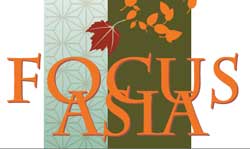 On Tuesday 25 November 2008, 09.15–14.45, the Centre for East and South-East Asian Studies (ACE), Lund University again arranges a series of public lectures titled ”Focus Asia”. The theme for the November 2008 Focus Asia will be ”(In)security in Asia: Land, Energy & Food”, and features one lecture focusing on the North West Frontier Province (NWFP) of Pakistan.
On Tuesday 25 November 2008, 09.15–14.45, the Centre for East and South-East Asian Studies (ACE), Lund University again arranges a series of public lectures titled ”Focus Asia”. The theme for the November 2008 Focus Asia will be ”(In)security in Asia: Land, Energy & Food”, and features one lecture focusing on the North West Frontier Province (NWFP) of Pakistan.
 Humaira Daniel (photo to the left) working at the United Nation University’s Institute for Environment and Human Security (UNU-EHS) in Bonn, Germany as an Outreach and Program Associate, will speak about ”The role of tribal elders in overcoming insecurities (Land and People): Case Study of Mainkhel Tribe in Village Gandi Umer Khan, Dera Ismail Khan North West Frontier Province” (read the abstract). Ms. Daniel is also affiliated with Centre for Development Research (ZEF), University of Bonn, finalizing her PhD thesis on Water Control and Livelihood strategies in the NWFP. Venue for the seminar: ACE, Java Hall, Scheelevägen 15 C, Lund.
Humaira Daniel (photo to the left) working at the United Nation University’s Institute for Environment and Human Security (UNU-EHS) in Bonn, Germany as an Outreach and Program Associate, will speak about ”The role of tribal elders in overcoming insecurities (Land and People): Case Study of Mainkhel Tribe in Village Gandi Umer Khan, Dera Ismail Khan North West Frontier Province” (read the abstract). Ms. Daniel is also affiliated with Centre for Development Research (ZEF), University of Bonn, finalizing her PhD thesis on Water Control and Livelihood strategies in the NWFP. Venue for the seminar: ACE, Java Hall, Scheelevägen 15 C, Lund.
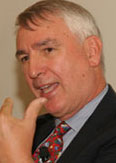 In another open seminar the same day, Prof. Peter Timmer (photo to the right) from the Program on Food Security and the Environment at Stanford University, USA will talk about food security in Asia in a lecture titled ”The World Food Crisis: Asian Origins and Asian Solutions?”. This lecture is arranged in cooperation with the interdisciplinary Rural Development Group (RuDe) at Lund University and will take place in the Auditorium of the museum Kulturen at Tegnérplaten in central Lund. It is also part of an ongoing RuDe programme on ”The World Food Crisis: Prospects for Development – Asia and Africa at the Crossroads?”
In another open seminar the same day, Prof. Peter Timmer (photo to the right) from the Program on Food Security and the Environment at Stanford University, USA will talk about food security in Asia in a lecture titled ”The World Food Crisis: Asian Origins and Asian Solutions?”. This lecture is arranged in cooperation with the interdisciplinary Rural Development Group (RuDe) at Lund University and will take place in the Auditorium of the museum Kulturen at Tegnérplaten in central Lund. It is also part of an ongoing RuDe programme on ”The World Food Crisis: Prospects for Development – Asia and Africa at the Crossroads?”
More information about the November 2008 Focus Asia.
• Växjö seminar on Trans-boundary water disputes
A research seminar on ”Trans-boundary water disputes” will be held at the School of Social Sciences, Växjö University, on Tuesday 2 December 2008, 10.15–12.00. Dr. Nilanjan Ghosh, Senior Vice President at MCX Academia of Economic Research (MAER), Mumbai, India will present and discuss his paper ”A scarcity value based explanation of trans-boundary water disputes: the case of the Cauvery River Basin in India”. The issue is at the forefront of the global environmental debate, not least because scarce water resources could lead to conflicts. Efficient management of such resources and appropriate institutional arrangements are hot topics. Dr. Ghosh obtained his doctorate from the Indian Institute of Management (IIM) in Kolkata and has been a researcher and lecturer at the TERI Institute in New Delhi. Presently he heads the research, consultancy, and publications initiatives of MAER, an economic research and consultancy centre at the Multi Commodity Exchange of India Limited (MCX) in Mumbai. Nilanjan Ghosh has been invited to Växjö University by Prof. Emil Uddhammar at the Dept. of Political Science, School of Social Sciences. Venue: Room K 2042, 2nd floor, Georg Lückligs väg 8, Växjö.
• Amit Prakash lectures on Jharkhand state in Stockholm
Associate Professor Amit Prakash, Centre for the Study of Law
and Governance, Jawaharlal Nehru University (JNU) in New Delhi, India will hold a public lecture at Stockholm University on Tuesday 2 december 2008, 13–15. Dr. Prakash will talk about ”Regional and Indigenous
Politics in India:
Identity and Development in
Jharkhand state”. In his presentation, he critizises the way that the post-colonial Indian state has
negotiated with the questions related to tribal groups (adivasis) and the
process of uneven ‘development’. Jharkhand is a state in eastern India
which was carved out of the southern part of Bihar in 2000. The seminar is jointly organised by the Dept. of South and Central Asian Studies, Stockholm University, and the Nordic Centre in India (NCI) university consortium. Venue: Room 136, Kräftriket 4 A, ground floor, Stockholm. More information.
• Amit Prakash lectures on Jharkhand state in Uppsala
Associate Professor Amit Prakash, Centre for the Study of Law
and Governance, Jawaharlal Nehru University (JNU) in New Delhi, India will also hold a public lecture at Uppsala University on Wednesday 3 december 2008, 13–15. Dr. Prakash will talk about ”Regional and Indigenous
Politics in India:
Identity and Development in
Jharkhand state”. In his presentation, he critizises the way that the post-colonial Indian state has
negotiated with the questions related to tribal groups (adivasis) and the
process of uneven ‘development’. Jharkhand is a state in eastern India
which was carved out of the southern part of Bihar in 2000. The seminar is jointly organised by the Dept. of Government, Uppsala University, and the Nordic Centre in India (NCI) university consortium. Venue: Universitetshuset (Main university building), room XI, Uppsala. More information.
• Mahbub Alam lectures in Göteborg and Uppsala
Dr. Mahbub Alam, Assistant Professor of Anthropology at the Independent University Bangladesh (IUB), Dhaka holds a lecture in Uppsala on Thursday 4 December 2008, 14–16. Dr. Alam will speak about ”Slaves of Water: Indigenous Knowledge and Experience of Hindu Fishermen on the Floodplain of Bangladesh”. In his lecture, Dr Alam will address the competition of scarce resources such as land, water and fish in Tangail District, Bangladesh. He will discuss the different perceptions of these resources among land owning farmers and landless traditional fishermen, and how this affects resource use as well as the reception of development interventions. Furthermore, he will contrast indigenous knowledge with scientific knowledge.
After the lecture, all participants are invited to take part of snacks and Bengali folk music in the Cemus Library from 16–17. Dr Alam is a folk singer, who just released his first CD, and he will tell us about Bengali folk music and sing Bengali folk songs as well as Tagore songs influenced by folk tradition.
The seminar is organized by DevNet, the Development Research Network on Nature, Poverty and Power, in cooperation with the School of Global Studies and SASNET, the Swedish South Asian Studies Network. Venue: Lokomotivet, CSD Uppsala, Villavägen 16 (Geocentrum), Uppsala. More information.
Two days earlier, on Tuesday 2 December, 13–15, Dr. Alam also lectures at the School of Global Studies, Göteborg University. The lecture in Göteborg is titled ”Contested Identities: Folk Music, Religion and Politics in Contemporary Bangladesh”. More information.
Dr. Alam’s visit to Sweden has been financed by a SASNET guest lecture programme grant.
Business and Politics
• Carl Bildt visited Afghanistan
Swedish Minister for Foreign Affairs Carl Bildt made his first visit to Afghanistan on 29-31 October to meet President Karzai and Minister of Foreign Affairs Dr Spanta, and to inaugurate the new Swedish Embassy in Kabul. A trip was also made to Mazar-e-Sharif, with a focus on the Swedish troops in the area. Mr Bildt's agenda also included meetings with MPs and representatives of the international community. More information.
• Information about South Asia related business and politics in Sweden
See SASNET's page, http://www.sasnet.lu.se/polbuss.html
South Asia related culture in Scandinavia
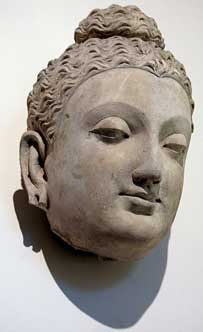 • Museum lecture in Stockholm on Silk Road trading post in Afghanistan
• Museum lecture in Stockholm on Silk Road trading post in Afghanistan
A public lecture on Hadda, an ancient trading post on the Silk Road located in eastern Afghanistan, will be held at the Museum of Far Eastern Antiquities in Stockholm on Saturday 22 November 2008, 13–16. The lecture is titled ”Sidenvägen. Hellenismens östligaste utpost?
Men beställarna i Hadda var ju buddhister!
Om ett hotat kulturarv i östra Afghanistan”. The curators Eva Myrdal and Pat Marino (from the Museum of Mediterranean and Near Eastern Antiquities, also in Stockholm) will talk about the Greco-Buddhist archeological Hadda site (located in the ancient area of Gandhara, inside the Khyber Pass, south of the city of Jalalabad), and how the illegal trade with cultural artefacts threatens our understanding of ”the crossroad of cultures”. Buddhist sculptural art objects from Hadda are also shown in the museum, objects deposited by Musée
Guimet. They were found when a French archaeological excavation was carried out in Hadda during the 1920s.
Venue: Beijing conference hall, Museum of Far Eastern Antiquities, Skeppsholmen, Stockholm. More information.
• Satriya dance, pakhawaj and tabla concerts in Stockholm/Uppsala
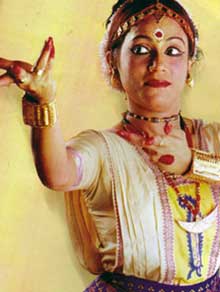 Jonas Landahl organises what is called an ”Indian Dance and Music Sunday” full of cultural performances on 30 November 2008, from 14.00. Anita Sharma (photo to the right), one of the leading performers of the classical Satriya dance form – developed out of the medieval Vaishnava traditions in Assam – will be the main attraction. The Pakhawaj maestro Kishore Ghosh from West Bengal will play a composition by the Tabla maestro Suranjana Ghosh along with a Tabla orchestra consisting of Suranjana herself, Johan Börgesson, Erik Cederlöf, Hugo Widén, Susheel Kaur and Jonas Landahl. Coste Apetrea will play blues guitar accompanied by Suranjana Ghosh on Tabla. Finally a documentary film by Jonas Landahl on artistry and musical traditions inthe state of West Bengal will be shown. Venue: Musikmuseet, Sibyllegatan 2, Stockolm. More information.
Jonas Landahl organises what is called an ”Indian Dance and Music Sunday” full of cultural performances on 30 November 2008, from 14.00. Anita Sharma (photo to the right), one of the leading performers of the classical Satriya dance form – developed out of the medieval Vaishnava traditions in Assam – will be the main attraction. The Pakhawaj maestro Kishore Ghosh from West Bengal will play a composition by the Tabla maestro Suranjana Ghosh along with a Tabla orchestra consisting of Suranjana herself, Johan Börgesson, Erik Cederlöf, Hugo Widén, Susheel Kaur and Jonas Landahl. Coste Apetrea will play blues guitar accompanied by Suranjana Ghosh on Tabla. Finally a documentary film by Jonas Landahl on artistry and musical traditions inthe state of West Bengal will be shown. Venue: Musikmuseet, Sibyllegatan 2, Stockolm. More information.
The day before, on Saturday 29 November 2008, at 18.00 the full programme (except the film) is also given in Uppsala. Venue:
Mikaelskyrkan, Skolgatan 26, Uppsala.
• Anita Nair reports from the 2008 Göteborg Book Fair
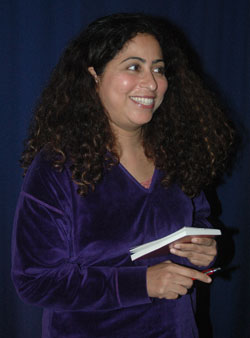 In an article titled ”Discovering India in a corner of Sweden”, the writer Anita Nair gives a positive report from the 2008 Göteborg
Book Fair (Bok- och Biblioteksmässan) that was held 25–28
September. As SASNET has pointed out in an earlier newsletter, there was quite a focus on India at the book fair. Several Indian writers, among them the legendary Bengali writer and cultural personality Mahasweta Devi were present, invited to Sweden by the Indian Library in Sweden (Indienbiblioteket), that in September 2008
again coordinated the publication of a number of Indian books translated into Swedish.
In an article titled ”Discovering India in a corner of Sweden”, the writer Anita Nair gives a positive report from the 2008 Göteborg
Book Fair (Bok- och Biblioteksmässan) that was held 25–28
September. As SASNET has pointed out in an earlier newsletter, there was quite a focus on India at the book fair. Several Indian writers, among them the legendary Bengali writer and cultural personality Mahasweta Devi were present, invited to Sweden by the Indian Library in Sweden (Indienbiblioteket), that in September 2008
again coordinated the publication of a number of Indian books translated into Swedish.
• More information about South Asia related culture
in Sweden and Scandinavia
See SASNET’s page, http://www.sasnet.lu.se/culture.html
New and updated items on SASNET web site
• Swedish departments where research on
South Asia is going on:
Constantly added to the list of research environments at Swedish
universities, presented by SASNET. The full list now includes 231 departments,
with detailed descriptions of the South Asia related research and education
taking place! Go to http://www.sasnet.lu.se/environment.html
ƒ Study of Religions, School of Gender, Culture and History, Södertörn University College, Huddinge
• Useful travelling information
Look at http://www.sasnet.lu.se/travelling.html.
Updated travel advises from the The British Foreign & Commonwealth
Office about safety aspects on travelling to the countries of
South Asia.
Best regards,
Sidsel Hansson Lars Eklund
SASNET/Swedish South Asian Studies Network
SASNET is a national network
for research, education, and information about South Asia, based at Lund
University. The aim is to encourage and promote an open and dynamic networking
process, in which Swedish researchers co-operate with researchers in South
Asia and globally.
The network is open to all sciences. Priority is given to co-operation
between disciplines and across faculties, as well as institutions in the
Nordic countries and in South Asia. The basic idea is that South Asian
studies will be most fruitfully pursued in co-operation between researchers,
working in different institutions with a solid base in their mother disciplines.
The network is financed by Sida (Swedish
International Development Cooperation Agency) and by Lund
University.
Postal address: SASNET – Swedish South Asian Studies Network,
Scheelevägen 15 D, SE-223 70 Lund, Sweden
Visiting address: Ideon Research Park, House Alpha 1 (first floor,
room no. 2040), in the premises of the Centre for East and South
East Asian Studies at Lund University (ACE).
Phone: + 46 46 222 73 40
Fax: + 46 46 222 30 41
E-mail: sasnet@sasnet.lu.se
Web site:
http://www.sasnet.lu.se
SASNET - Swedish South Asian Studies Network/Lund
University
Address: Scheelevägen 15 D, SE-223 70 Lund, Sweden
Phone: +46 46 222 73 40
Webmaster: Lars Eklund
Last updated
2011-04-08
